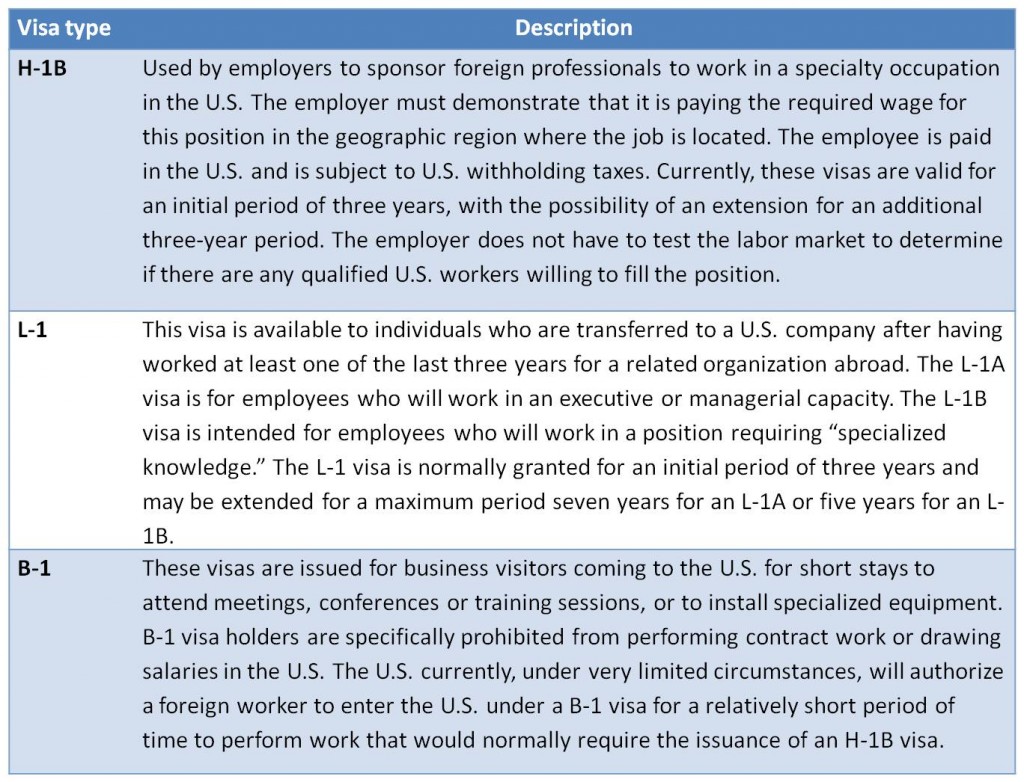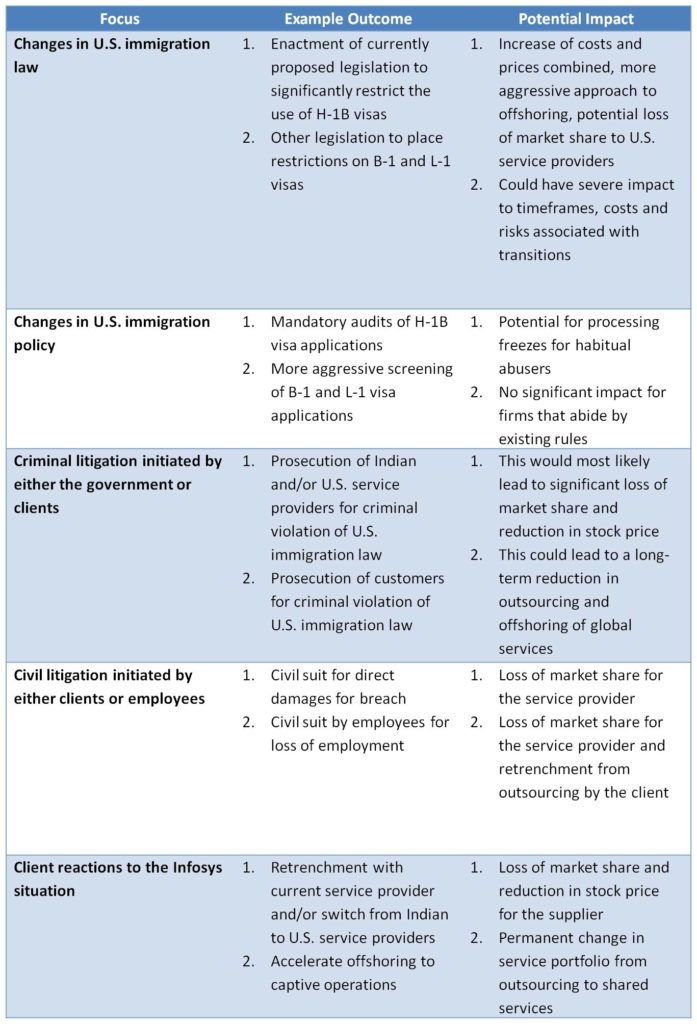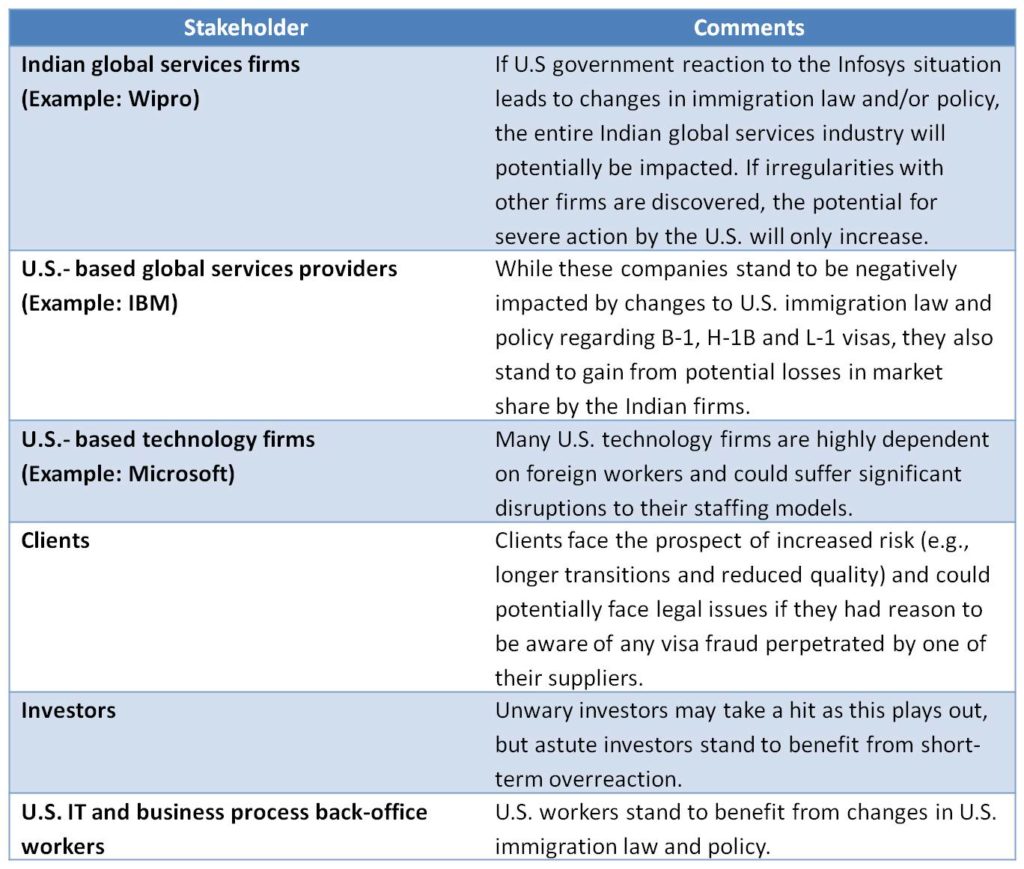The recent allegation against Infosys of manipulating U.S. immigration law to allow it to bring large numbers of Indian employees into the U.S. to do work under visas that do not allow such activities illustrates a problem that permeates all aspects and components of the global services industry. And if legislative policy changes or definitions are made – although it’s unlikely new legislation would be passed before the next election cycle – all involved stakeholders could face significant impact.
Let’s take a look.
The types of visas
The three primary types of visas used to bring foreign nationals into the U.S. for business purposes are:
Possible actions to address the situation
While it is impossible to foresee with certainty how things will play out, we can identify some of the more likely outcomes and, by extension, predict what the potential impacts might be:
The stakeholders and the potential impact on them
The organizations that may be impacted by policy changes include:
This is a dynamic situation with frequent new developments:
- According to a report in India’s Financial Express on July 23, the Union Bank of California (UBC) recently cancelled a $20 million dollar contract with Infosys to implement Infosys’ Finacle banking platform, reportedly because of UBC’s “changed business priorities.”
- A July 12 Computerworld article reported that 18 IT workers in California have filed a lawsuit against their former employer, Cognizant, claiming they were replaced by Indian H-1B workers from Cognizant in violation of the state’s anti-discrimination laws.
Again, we don’t know how this situation will play out as there are too many uncertainties and dynamics in play. We may discover that any alleged wrongdoing by Infosys is isolated and the result of a few renegade managers who let their enthusiasm overwhelm their better judgment. This would most likely have short-term negative impact on Infosys with no longlasting effect on the global services industry.
However, if the current highly politicized environment was further enflamed with a finding that Infosys and or others were or are engaged in what is considered to be visa fraud, a more serious scenario could unfold in which Infosys, and possibly other service providers, are meaningfully restricted in bringing offshore talent to the United States. This, of course, would significantly disrupt their business.
In a related scenario, the definitions and polices that are set by the State Department that guide the use of B1s and L1s could be changed to restrict and narrow the use of these visas; such a development would have an industry-wide impact with implications extending to many technology and services firms, regardless of their home base. Clearly, this is a set of issues we should all keep an eye on.
In an effort to help on this issue, Everest Group has released an Executive Point of View paper on the topic and will continue to monitor this issue closely. Click here to download this paper, The Implications of Potential Changes to Laws and Policies on United States Employment Visas.
Peter Bendor-Samuel is CEO and Founder of Everest Group. Lenny Joiner is an Engagement Director at Everest Group.
Reposted with permission; originally published in the Everest blog.



